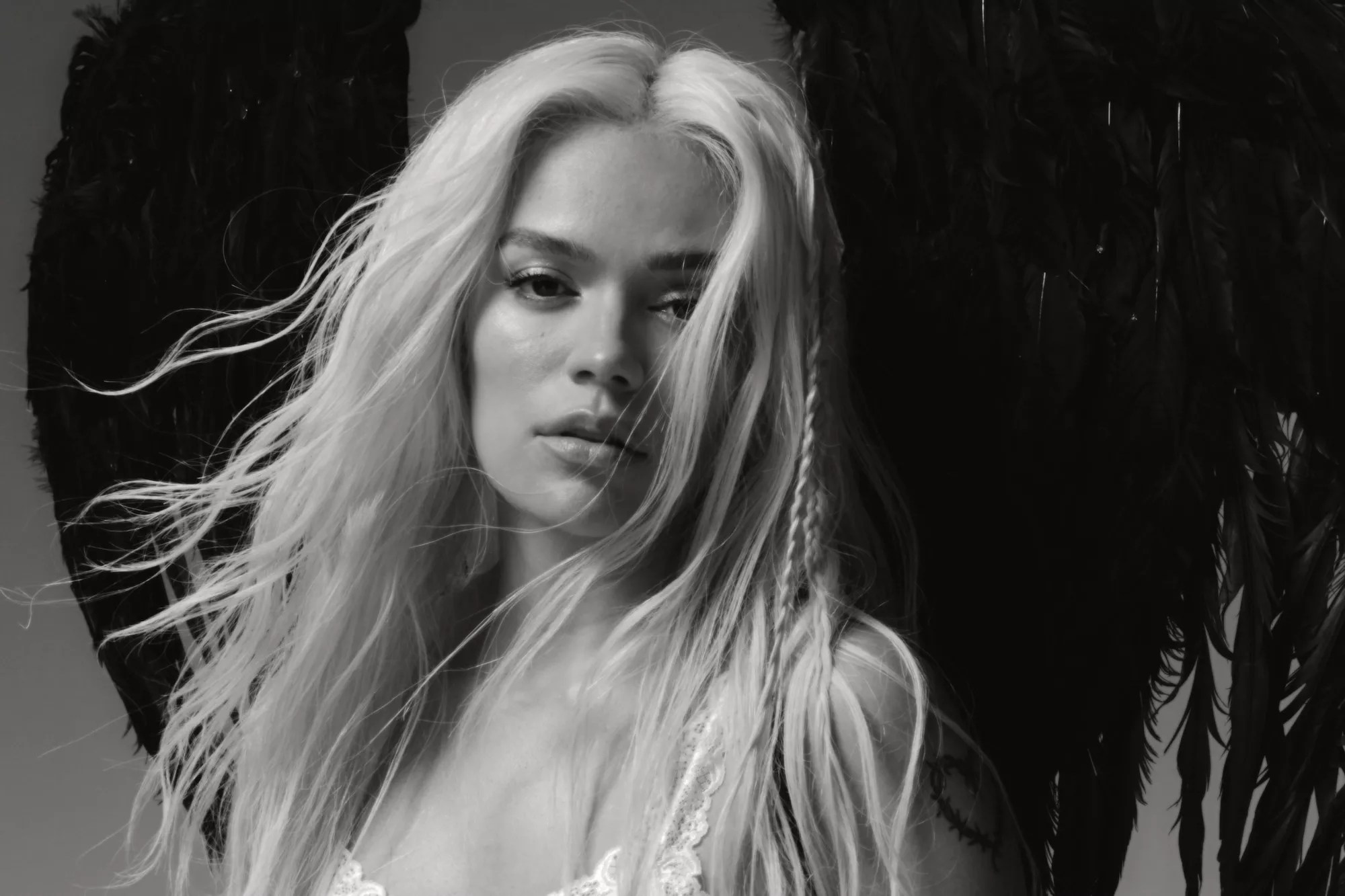
Photo by Pablo Escudero

Audio By Carbonatix
In the ever-evolving sphere of modern music, there are few moments when an artist sparks a powerful cultural revolution that reshapes the very fabric of society. Yet, Karol G, the Colombian reggaeton sensation, has inadvertently become the catalyst of such an awakening for women everywhere – all through a word she coined on her own.
Starting as a catchy tune from the growing artist that topped the charts, “Bichota” soon blossomed into an anthem of empowerment, especially among Latinas, with the song’s music video amassing more than one billion views on YouTube. However, much to the chagrin of the Medellín native, bichota wasn’t a term before the song’s release.
Instead, bichota was Karol G’s alternative for the word bichote, which typically refers to a strongly influential or important individual, usually a man, in the context of drug selling. It comes from Puerto Rican slang, and when Karol realized there was no feminine equivalent, she coined bichota to create an empowering embodiment for all people, including women.
“It’s a moment of feeling sexy, flirtatious, daring, strong, empowered, and to a certain extent, [it] translates into personal motivation and self-confidence,” the singer told Billboard in 2020. “We are all super ‘bichotas’ inside. It’s about believing and working so that the rest of the world can see it, too.”
After releasing the chart-topping single, there seemed to be a seismic shift in Latin culture, inspiring a generation of Latinas and femme-presenting people to embrace their authentic selves unapologetically. With many proudly claiming the title of bichota across their personal lives and on social media, it has since paved the way for other influential women in music to find their facets of authenticity and strong feminine energy, similar to what Rosalía espoused on Motomami and Beyoncé on Renaissance.
With the release of her mixtape, Mañana Será Bonito (Bichota Season), a companion to her fourth album, Mañana Será Bonito, the empowering term and Karol’s confident, feminine spirit are back in the limelight. In tandem with the album’s title, which translates to “Tomorrow Will Be Beautiful” in English, the reggaetonera’s ability to rise above obstacles in her career and personal life gives the impression of her near-impenetrable invincibility.
She became the first woman ever to debut atop the Billboard 200 with a Spanish-language album, has collaborated with the biggest names in reggaeton, from Daddy Yankee to Bad Bunny, went 28 times platinum on her single “Tusa” with Nicki Minaj, and held her highest topping single “TQG” alongside fellow Colombian superstar Shakira.
Since the release of her 2017 debut album, Unstoppable, Karol G’s Rolodex of worldwide acclaim includes songs like “Mi Cama,” “Ay Dios Mio,” “El Makinon,” and “Mamiii.” Often, her music prioritizes her sexual agency and centers collaborations with other Latinas dominating the music space, from Mariah Angeliq to Becky G. She even released her single “Watati” featuring Aldo Ranks for arguably the most feminist film of the decade, Greta Gerwig’s Barbie.
It’s hard to believe that after such commercial success, there was a point in the 32-year-old artist’s life when a major label like Universal Music refused to sign the global superstar, explicitly citing that a woman couldn’t make it in reggaeton. The label bosses would eat their words after signing her in 2016, following the success of her first real hit, “Ricos Besos,” which became especially popular in the dance halls of her native Colombia.
Even after her public relationship with Puerto Rican rapper Anuel AA ended in 2021, with whom she collaborated on tracks like “Culpables” and “China,” she was the subject of constant ridicule and public harassment as her ex continuously called her out on social media and at his concerts. Yet through it all, she never addressed the noise, focusing on her blossoming career and empowering others through her work. Having passed through heartbreak and finding her peace, Karol G is a living testimony to her ability to work through adversity, and now it’s time to have fun.
With her latest mixtape and 2023 tour, which includes a two-night stint at Hard Rock Stadium in Miami Gardens August 25-26, bichota season is officially in full swing. The mixtape’s pink-hued artwork and handwritten song titles that drape the collection are reminiscent of Karol writing to herself and other young women in a diary, reminding us all about the power of staying true to ourselves. The album’s roster includes a TiÁ«sto-assisted remix of the single “Provenza” and collaborations with artists like Young Miko and Kali Uchis, with every track oozing classic reggaeton beats and offering the idea of living life to the fullest.
As bichota season sets sail with its formidable reina at the forefront, Karol G emerges as the face of a profound cultural revolution that resonates with Latinas and women across the globe. Her unwavering tenacity is a powerful testament to those intimately familiar with adversity. By remaining true to ourselves and embracing inner peace, the promise of a breakthrough becomes inevitable.
Each of us possesses our unique bichota essence, yet the one and only bichota, La Bichota, will unapologetically hold the title for years and years to come.
Karol G. With Bad Gyal and Agudelo888. 7 p.m. Friday, August 25, and Saturday, August 26, at Hard Rock Stadium, 347 Don Shula Dr., Miami Gardens; 305-943-8000; hardrockstadium.com. Tickets cost $67 to $352 via ticketmaster.com.